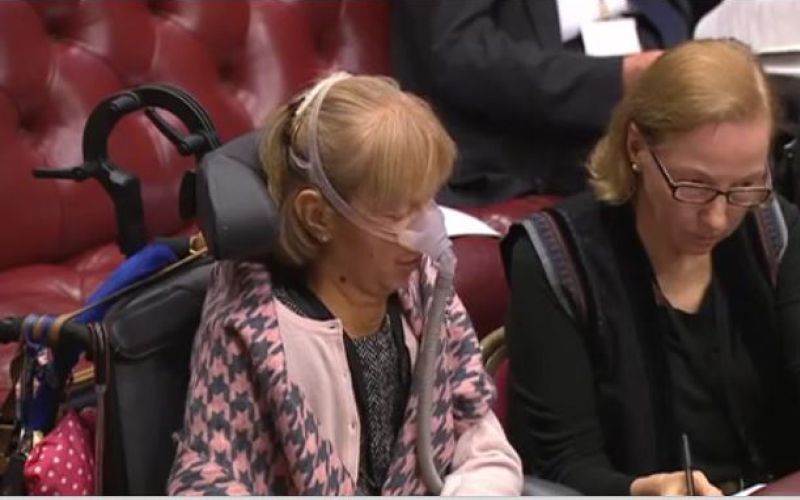Recruiting a personal assistant (PA) has become harder since the start of the pandemic, with many disabled people giving up hope of ever finding someone suitable to provide their care and support, according to a new survey.
The survey, which was co-produced with disabled people, found there were “severe shortages” of PAs in England.
Many disabled people are being left with no support for long periods of time, because of council restrictions on how much they are allowed to pay their PAs.
A report on the survey, The Forgotten Workforce, found that low pay “outstripped every other factor” that users of PAs said was making recruitment more difficult.
Of nearly 1,000 users of PAs who took part in the survey, most of whom use direct payments or personal health budgets to pay their staff, 662 of them said action on pay was urgently needed.
One disabled person who took part in the survey said: “All my available income goes on PA wages.
“No visits to cinema or theatre or dining out with friends or family for same reason.
“If their wages need to increase again, I despair of surviving and may have to go to a care home as a last resort.”
The report concludes that the direct payments and personal health budgets system was “not working as set out in the Care Act for many people”, with few of those surveyed seeing themselves as having the choice and control they wanted.
The report adds: “People who have been recruiting PAs for many years said it was more difficult now than it has ever been.”
The online survey asked about people’s experiences between the start of the pandemic in March 2020 and January this year.
An estimated 70,000 people in England receive care and support and employ a PA.
The survey was designed by the Local Government Association and Think Local Act Personal*, in co-production with people supported by a PA.
Of those surveyed who needed to recruit a new PA between March 2020 and January 2022 (776 people), 600 of them (77 per cent) said they had found it harder to do so than pre-pandemic.
One of those who responded to the survey said: “By far the most difficult issue is that Direct Payments do not pay an hourly rate remotely in line with the skill set required of a typical PA – which simply means it’s impossible to employ anyone unless they are willing to take a significant cut in their hourly rate!
“This makes no sense whatsoever since Direct Payments is willing to pay substantially more per hour to ‘care provider companies’ who then pay their staff minimum wage.
“Typical PA rate £16 per hour. Maximum Direct Payments will pay: £13. Typical hourly rate of care company: £21.”
Another said: “I feel the main thing is pay. I started with a direct payment five years ago and the pay hasn’t gone up by one penny since then.”
More than 120 people who responded to the survey wanted councils to develop a local pool of vetted PAs, while 128 people wanted more support from councils, government and NHS funders.
Some of those who took part in the survey said they had taken on PAs they knew were “not right for the job” and were having to “compromise on their support” because of PA shortages.
Others said that PA shortages and the pandemic had combined to leave them – and the unpaid carers who helped fill the gaps in their support – “exhausted”.
The report makes it clear that the pandemic is not the only explanation for the problems with PA recruitment.
It says: “We find that PA recruitment has got harder, both in terms of a shortage of applicants and their suitability for the work.
“Low pay, poor terms and conditions, and restrictions by funders on what people can pay PAs are the primary drivers for this, alongside the impact of the Covid pandemic.”
*TLAP is a partnership of central and local government, social care providers, the NHS, the voluntary and community sector, and disabled people and others with lived experience
Picture: Baroness [Jane] Campbell at work with her personal assistant in the House of Lords
A note from the editor:
Please consider making a voluntary financial contribution to support the work of DNS and allow it to continue producing independent, carefully-researched news stories that focus on the lives and rights of disabled people and their user-led organisations.
Please do not contribute if you cannot afford to do so, and please note that DNS is not a charity. It is run and owned by disabled journalist John Pring and has been from its launch in April 2009.
Thank you for anything you can do to support the work of DNS…

 Letter from DPOs accuses care cuts council of ‘inhumane’ policies
Letter from DPOs accuses care cuts council of ‘inhumane’ policies ‘Underhand tactics’ could still see disabled people forced into care homes, say campaigners
‘Underhand tactics’ could still see disabled people forced into care homes, say campaigners Starmer’s ‘very alarming’ call to legalise assisted suicide
Starmer’s ‘very alarming’ call to legalise assisted suicide